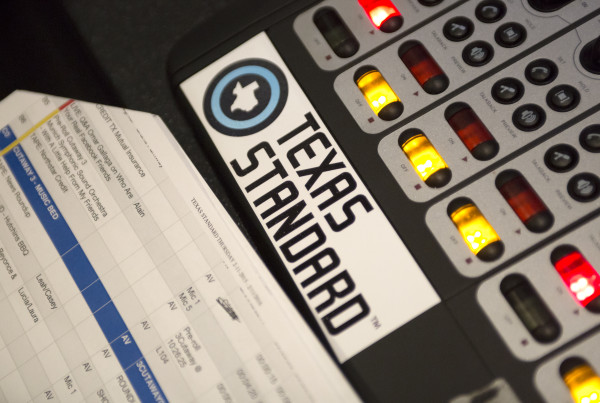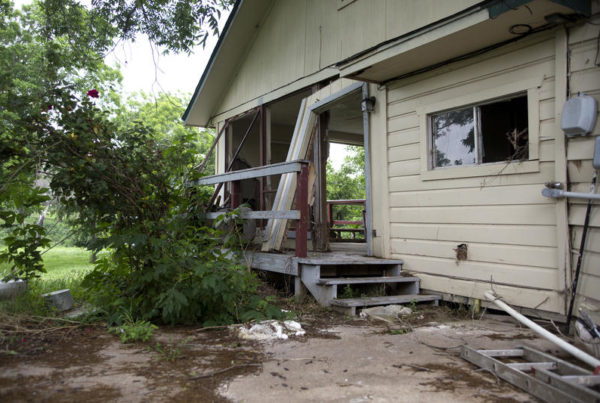Audio will be available shortly.
From Houston Public Media:
Just like the value county tax assessors put on a house, they also set a value for oil wells and then tax the property accordingly. But with the price of crude having dropped so much beginning in the summer of 2014, the taxable value of Texas oil wells is now roughly half what it was a year ago, says Rodney Kret at a tax consulting firm in Fort Worth.
“This 50 percent drop is the most I’ve ever seen in my 30-plus year career in property tax,” says Kret, director of mineral appraisals at Pritchard & Abbott.
The Fort Worth firm Kret works for is used by about half the county governments in Texas. So its valuations have a big impact.
But even though the firm has put far lower values on oil wells, there are some who say those values are still too high.
Damien Larson is with Myska & Vandervoort, a tax consulting firm in Houston that helps those companies challenge tax valuations.
“We represent approximately 90 oil and gas companies in the state of Texas,” Larson tells News 88.7.
Larson says Pritchard & Abbott, the Fort Worth firm, has been making valuations using an estimated price for oil that is wrong. In some cases, he says the price is as much as $12 a barrel too high, making the overall taxable value of the oil well too high.
“Depending on the type of crude you’re being paid for, the difference could be substantial,” says Larson. His views were posted on the website of the Texas Royalty Council which advocates for people with ownership interests in oil and gas wells.
The tax consultants at Pritchard & Abbott say Larson is the one who’s wrong.
“We vehemently disagree with the assertion that the values we’re proposing for this tax year 2016 are somehow overstated, because they’re not,” says Kret at Pritchard & Abbott.
Who’s right? That would be a question for county appraisal review boards that hear tax protests, in this case from anyone with an ownership right to an oil well including people who receive royalty checks which also have had a lot lower value in the last couple of years.
The state’s tax collector, the Texas Comptroller, is “staying out of this one” according to spokesperson Chris Bryan who told News 88.7 it’s an issue that should be resolved at the county level.

















